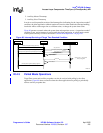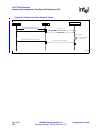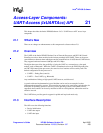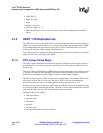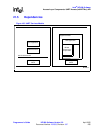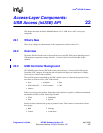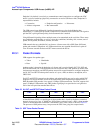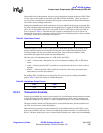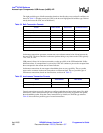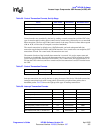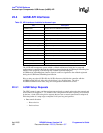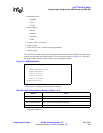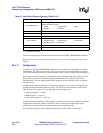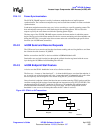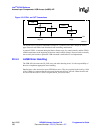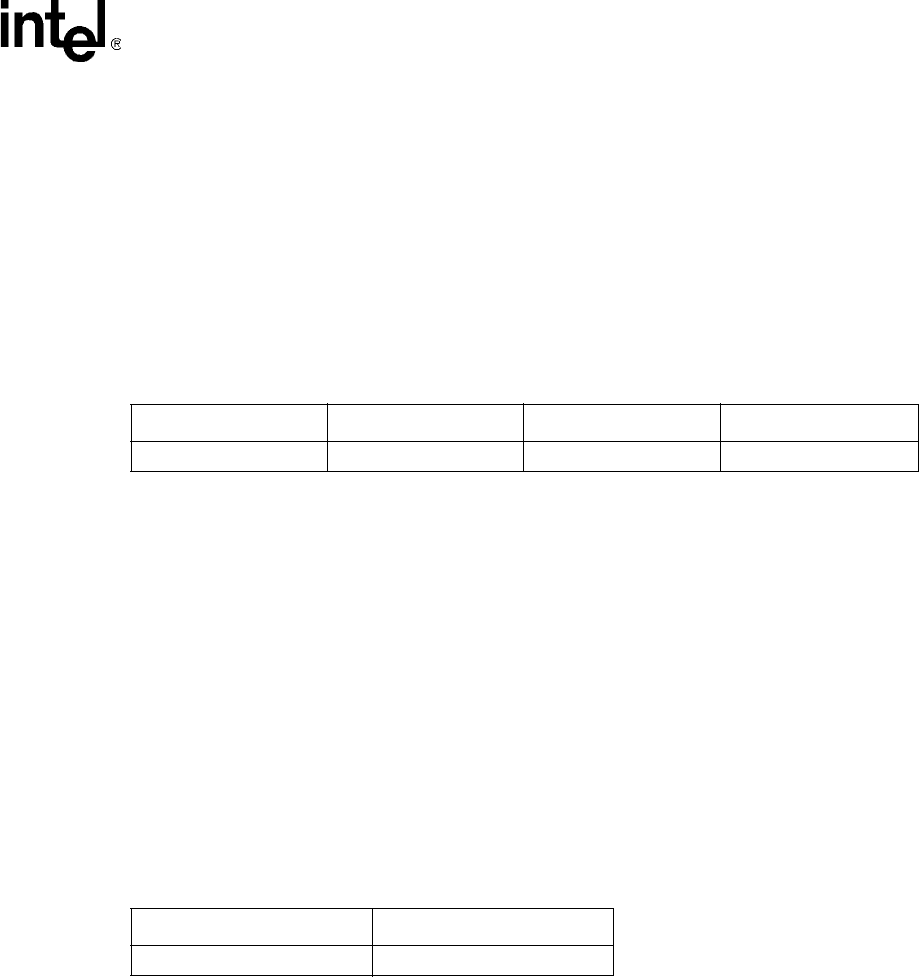
Intel
®
IXP400 Software
Access-Layer Components: USB Access (ixUSB) API
Programmer’s Guide IXP400 Software Version 2.0 April 2005
Document Number: 252539, Revision: 007 299
Data packets follow token packets, and are used to transmit data between the host and UDC. There
are two types of data packets as specified by the PID: DATA0 and DATA1. These two types are
used to provide a mechanism to guarantee data sequence synchronization between the transmitter
and receiver across multiple transactions.
During the handshake phase, both communicate and agree which data token type to transmit first.
For each subsequent packet transmitted, the data packet type is toggled (DATA0, DATA1, DATA0,
and so on). A data packet consists of a sync, a PID, from 0 to 1,023 bytes of data, and a CRC16
field, as shown in Table 52. Note that the UDC supports a maximum of 8 bytes of data for an
Interrupt IN data payload, a maximum of 64 bytes of data for a Bulk data payload, and a maximum
of 256 bytes of data for an Isochronous data payload.
Handshake packets consist of only a sync and a PID. Handshake packets do not contain a CRC
because the PID contains its own check field. They are used to report data transaction status,
including whether data was successfully received, flow control, and stall conditions. Only
transactions that support flow control can return handshakes.
The three types of handshake packets are: ACK, NAK, and STALL.
• ACK — Indicates that a data packet was received without bit stuffing, CRC, or PID check
errors.
• NAK — Indicates that the UDC was unable to accept data from the host, or it has no data to
transmit.
• STALL — Indicates that the UDC is unable to transmit or receive data, and requires host
intervention to clear the stall condition.
Bit stuffing, CRC, and PID errors are signaled by the receiving unit by omitting a handshake
packet. Table 53 shows the format of a handshake packet.
22.3.2 Transaction Formats
Packets are assembled into groups to form transactions. Four different transaction formats are used
in the USB protocol. Each is specific to a particular endpoint type: bulk, control, interrupt, and
isochronous. Endpoint 0, by default, is a control endpoint and receives only control transactions.
The host controller initiates all USB transactions, and transmission takes place between the host
and UDC one direction at a time (half-duplex).
Bulk transactions guarantee error-free transmission of data between the host and UDC by using
packet-error detection and retry. The host schedules bulk packets when there is available time on
the bus. The three packet types used to construct bulk transactions are: token, data, and handshake.
Table 52. Data Packet Format
8 Bits 8 Bits 0–1,023 Bytes 16 Bits
Sync PID Data CRC16
Table 53. Handshake Packet Format
8 Bits 8 Bits
Sync PID



